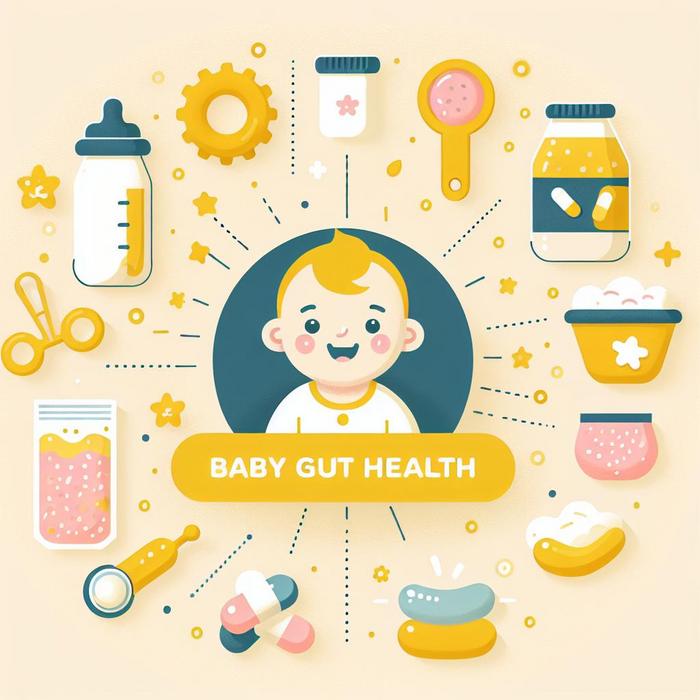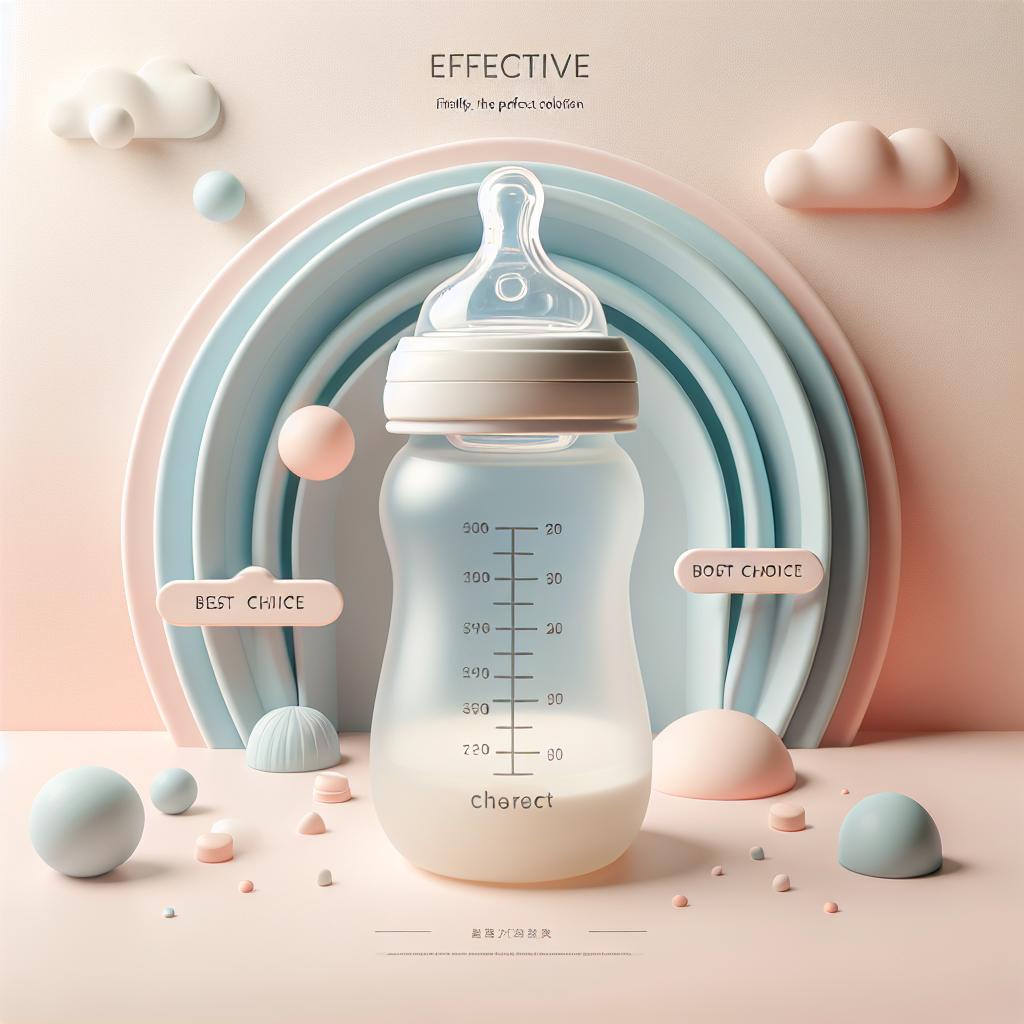Understanding the Power of Baby Probiotics
When it comes to your baby’s health, there are numerous factors to consider. One aspect that often doesn’t get the attention it deserves is gut health for babies. As parents, we strive to provide the best nutrition and care for our little ones, and baby probiotics have become a recent focus in our quest.
A growing body of research suggests that baby probiotics can play an essential role in improving baby digestion and overall health. But what are these probiotic supplements, and how can they benefit your baby? Here’s our experience with baby probiotics and the benefits we noticed.
The Basics of Baby Probiotics
Probiotics are live beneficial bacteria and yeasts that are essential for the digestive system. They are found naturally in our bodies but can also be obtained from certain types of foods or supplements. According to Healthline, baby probiotics specifically contain bacteria strains that are beneficial for infant health.
Adding probiotics to your baby’s daily routine could lead to significant improvements in their gut health. Here’re some of the potential benefits we witnessed with baby probiotics:
- Enhanced Digestive Health: Regular intake of probiotics helped in steadying our baby’s bowel movements and reducing instances of diarrhea and constipation, leading to improved digestion.
- Boosted Immunity: Since a large portion of the immune system resides in the gut, keeping it healthy can significantly boost your baby’s immune response. We noticed fewer instances of common colds and infections after introducing probiotics.
- Better Nutrient Absorption: With a healthier gut, our baby’s ability to absorb nutrients from food improved, leading to better overall growth and development.
Choosing the Right Probiotic Supplements for Your Baby
Selecting the ideal baby probiotics can be daunting due to the numerous options available. According to WebMD, it is essential to consider factors such as your baby’s age, diet, and overall health before deciding on a product.
For instance, if your baby is struggling with colic or constipation, you might want to consider probiotics that contain Bifidobacterium, a strain known to help ease these symptoms. Our article on common baby aches and pains provides more information on this.
Always consult with a healthcare professional before starting your baby on probiotics. They can provide guidance based on your baby’s specific needs and recommend a trusted brand.
Easy Ways to Introduce Baby Probiotics
HealthyChildren.org suggests that mixing probiotic powder into your baby’s bottle is an effective way to add these beneficial bacteria. If you’re breastfeeding, you can also consider taking probiotics yourself, as some beneficial bacteria can be passed to the baby through breast milk.
Incorporating probiotic-rich foods in your baby’s diet is another straightforward method. Once your baby starts on solids, foods like yogurt and cottage cheese can contribute to their gut health. Read our post on creating a stimulating environment for your baby for more ideas on introducing new foods.
In our experience, patience and consistency are key when introducing baby probiotics. It may take a few weeks to notice any improvements in your baby’s gut health. But once you do, it’s genuinely rewarding to see your baby happier and healthier.
Helping Your Baby Adjust to Probiotics
Adjusting to baby probiotics may take some time for your infant. Initially, he or she may experience bloating, flatulence or changes in blinking stools. These effects are usually short-term and should subside with regular use. If these symptoms persist, it is advisable to seek medical consultation to check for any underlying issues.
Benefits of Baby Probiotics
According to a report by Mylicon, baby probiotics grant a multitude of health benefits. Regular consumption can:
- Support the Development of a Healthy Gut Microbiome: Probiotics encourage the growth of beneficial bacteria in the baby’s gut contributing significantly to an ideal intestinal environment conducive to digestion.
- Manage Eczema and Allergies: Several studies suggest that probiotics can help reduce the severity of eczema in infants and may alleviate allergic reactions.
- Promote Mental well-being: Running parallel with the theory of the gut-brain axis, emerging research indicates the potential role of probiotics in a child’s mental health as a balanced gut may positively influence mood and behavior.
Probiotics for Infant in Varied Forms
With the benefit of technological advancements, probiotics for infants are available in varied forms and preparations such as liquid drops, powders, and chewable tablets. According to an informative article by the Canadian Digestive Health Foundation, one can select a suitable type of probiotic for their baby depending upon their need and preference.
Facts to Consider About Baby Probiotics
In order to ensure the maximum potential benefits, one must consider some crucial facts about baby probiotics:
- You must always consider specific strains when choosing baby probiotics as each has unique benefits and roles to offer.
- Keep temperature considerations in mind as many baby probiotics need to be refrigerated for maintaining their efficacy.
- Rely on trusted brands that guarantee product potency till its expiration.
Is it Safe to Give Probiotics to Babies?
Probiotics in general are considered safe for babies. However, it is always recommended to consult with a healthcare professional or pediatrician to ensure it’s appropriate for your baby’s specific needs. According to an article by Hackensack Meridian Health, babies born preterm, suffering from illnesses, or with an underdeveloped immune system should only be given probiotics under medical supervision.
The Role of Breastfeeding in Baby’s Gut Health
Research shows that breastfeeding also contributes to the baby’s gut health. According to an article on Champs Pediatrics, breast milk is rich in beneficial bacteria promoting a healthy gut, thereby reinforcing the benefits of probiotics for breastfed infants.
Maintaining Your Baby’s Gut Health
Improved gut health periates to a healthier life for your baby. Consequently, it is integral to keep an eye on your baby’s gut health from an early age. A balanced diet rich in fiber, staying hydrated, and daily physical activity can effectively contribute to maintaining healthy gut flora.







